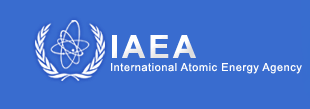Speaker
Mr
Zhiwei Zhou
(China)
Description
In this paper, a thorium-uranium based fusion-fission hybrid reactor (FFHR) aiming at efficiently utilizing natural uranium and thorium resources is presented. The major objective is to study the feasibility of this new concept with multi-purposes, including energy gain,tritium breeding ratio (TBR) and 233U breeding rate. The basic logic of this concept is to use the excess neutrons generated in the natural uranium fuel region to breed fissile fuel 233U in the thorium fuel region, while maintaining high energy amplifying factor (M) and tritium self-sufficiency. The guiding principle for the blanket design is to obtain a good neutron economy. The main method is to maximize the available neutrons and optimally distribute them in the blanket via competing processes of fission, tritium breeding and fissile fuel breeding by adjusting the neutron spectrum and system’s geometry. The COUPLE code developed by INET of Tsinghua University is used to simulate the neutronic behavior in the blanket. The simulation results show that a combined soft and hard neutron spectrum could yield M>15 while maintaining TBR>1.10 and conversion ratio of fissile materials (including 239Pu and 233U) CR>1.0 in a reasonably long refueling cycle (about 5 years). The results also demonstrates that due to the poor neutron economy with thorium, better utilization of thorium, which means high 233U fuel breeding capability, can only be achievable with the costs of system’s M and/or TBR performances. And the compromised solution between fission suppressed (fissile fuel breeding) and energy production oriented choices should be found under the hybrid system operating goals and the FFHR’s long-term nuclear development strategy.
Country or International Organization of Primary Author
China
Primary author
Mr
Sicong Xiao
(Institute of Nuclear and New Energy Technology, Tsinghua University)
Co-authors
Prof.
Yongwei Yang
(Institute of Nuclear and New Energy Technology, Tsinghua University)
Prof.
Zhiwei Zhou
(Institute of Nuclear and New Energy Technology, Tsinghua University)

